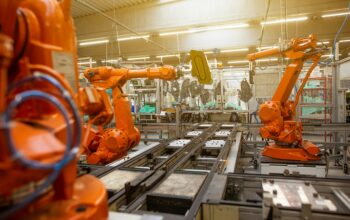Uzone.id – Technology currently continues to develop rapidly with changes that are always rapid. This brings big changes in various lives, including from an economic perspective. In Europe, this impact has been felt, giving rise to many new opportunities and challenges.
This rapid technological change only sometimes has a positive impact on the economy, but it also has a positive impact.
Let’s start with the positive impacts first, what are they?
1. Increased productivity
Ursula von der Leyen, President of the European Commission, said that automation, artificial intelligence (AI), and robotics could help increase efficiency and productivity in various sectors such as manufacturing, agriculture, and services.
“This allows companies to produce more with fewer resources, driving economic growth,” said Ursula von der Leyen.
2. Creation of new jobs
With increasing technology, it can open up new job opportunities in certain fields such as IT, data science, and software development. On the other hand, digital platforms such as e-commerce and ride-hailing also create new jobs in the informal sector.
3. Innovation increases
Technology drives innovation in various sectors allowing companies to create new products and services. Of course, by utilizing technology, these new products and services can be cheaper than the conventional versions. Thus, it can increase competitiveness on a global scale.
4. Expand market reach
Digital technology that relies on several platforms such as social media and e-commerce makes business more accessible to customers at a global level. In this way, business people can open new markets and increase export opportunities more easily.
5. Improve quality of life
By utilizing technology, people can improve their quality of life because they have access to better services such as health care, education, and transportation.

Even though it has many positive impacts, rapid technological developments can also have negative impacts. Here are some of the effects:
1. Loss of jobs
It turns out that the rapid development of technology not only increases jobs but can also eliminate jobs.
Valdis Dombrovskis, Executive Vice President of the European Commission for Financial Stability and Financial Services, explained that automation and other technologies could cause job losses in many sectors.
“Automation and other technologies can cause job losses in some sectors, especially those involving routine tasks. This can lead to unemployment and social inequality,” claimed Valdis Dombrovksis.
2. Skills gap
Rapid technological change can also create skills gaps between workers. Remember that there will be workers who have the skills needed to work in the digital era and those who do not have these skills.
This can certainly make it difficult for some people to find work and adapt to economic changes.
3. Cybersecurity
With the development of technology, there are also new threats in terms of cyber security. Personal data held by several business people to run their business can be hacked by irresponsible parties, thereby endangering businesses and individuals.
4. Ethics
“New technologies such as AI and biotechnology can raise new ethical problems that need to be considered and addressed,” stated Vera Jourova, European Commissioner for Justice.
Even though it faces positive and negative impacts, technological changes and developments certainly cannot be stopped. Governments and other stakeholders need to work together to overcome the challenges that technological change is bringing so that they can take advantage of its opportunities.
Some steps that can be taken to face the challenges of technological development include investing in education and training.
“We need to invest in education and training to ensure that workers have skills in the digital era. Including digital, STEM, and entrepreneurial skills,” said Ursula von der Leyen.
On the other hand, the government also needs to create policies that support innovation and entrepreneurship. This includes providing appropriate funding, infrastructure, and regulatory support.
Including developing regulations that protect data privacy and security. This development is important to gain public trust in technological changes.
Strengthening digital infrastructure is also important to face today’s rapid technological changes. The need for digital infrastructure to ensure equitable access to technology and digital services. One of them is expanding high-speed internet access and developing the 5G network.
Finally, it is necessary to ensure that the technology used remains ethical and responsible. This needs to be ensured, including developing ethical guidelines for the development and use of technology.
It should be remembered that technology will continue to have a significant impact, especially on the economy, in the years to come. With the right policies and sustainable investment, technology can be used for economic growth, creating new jobs, and improving people’s quality of life.














